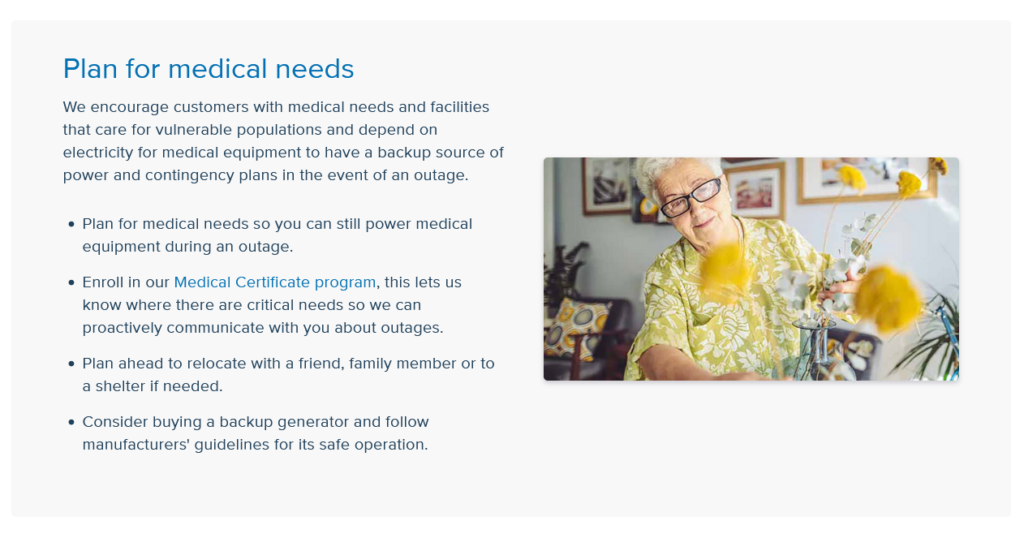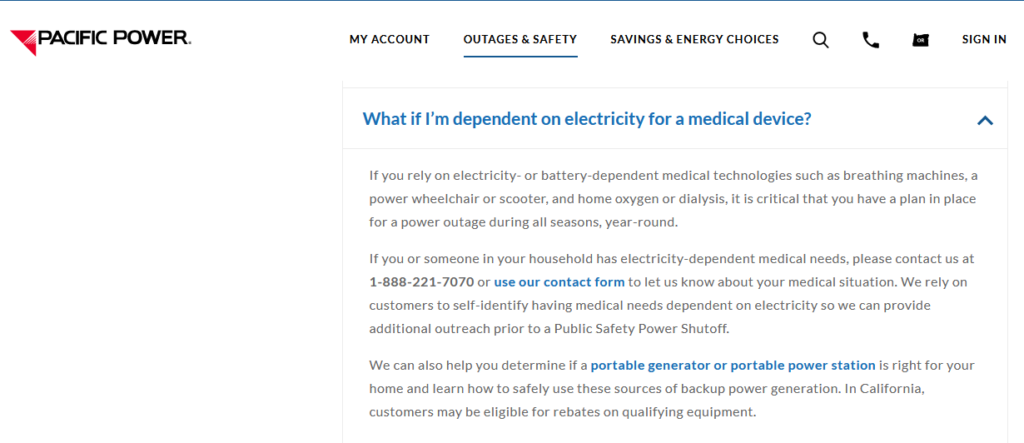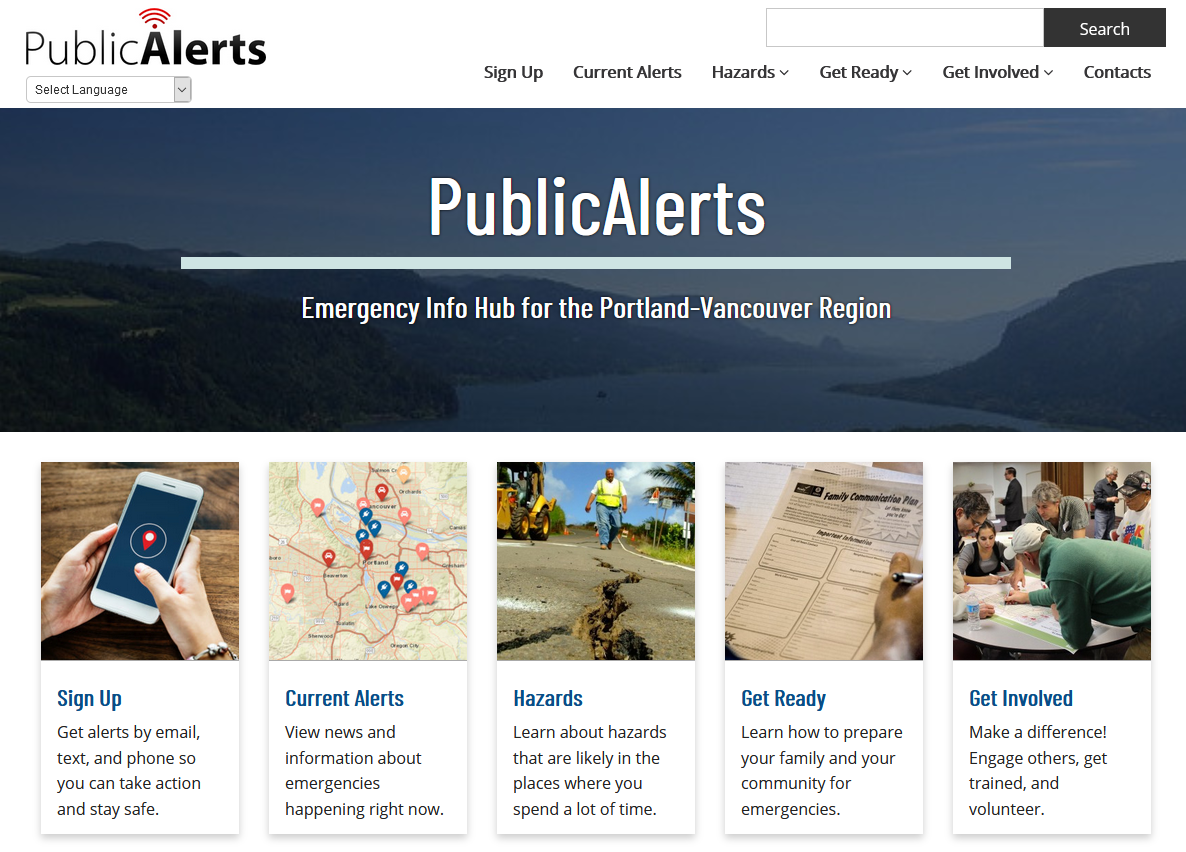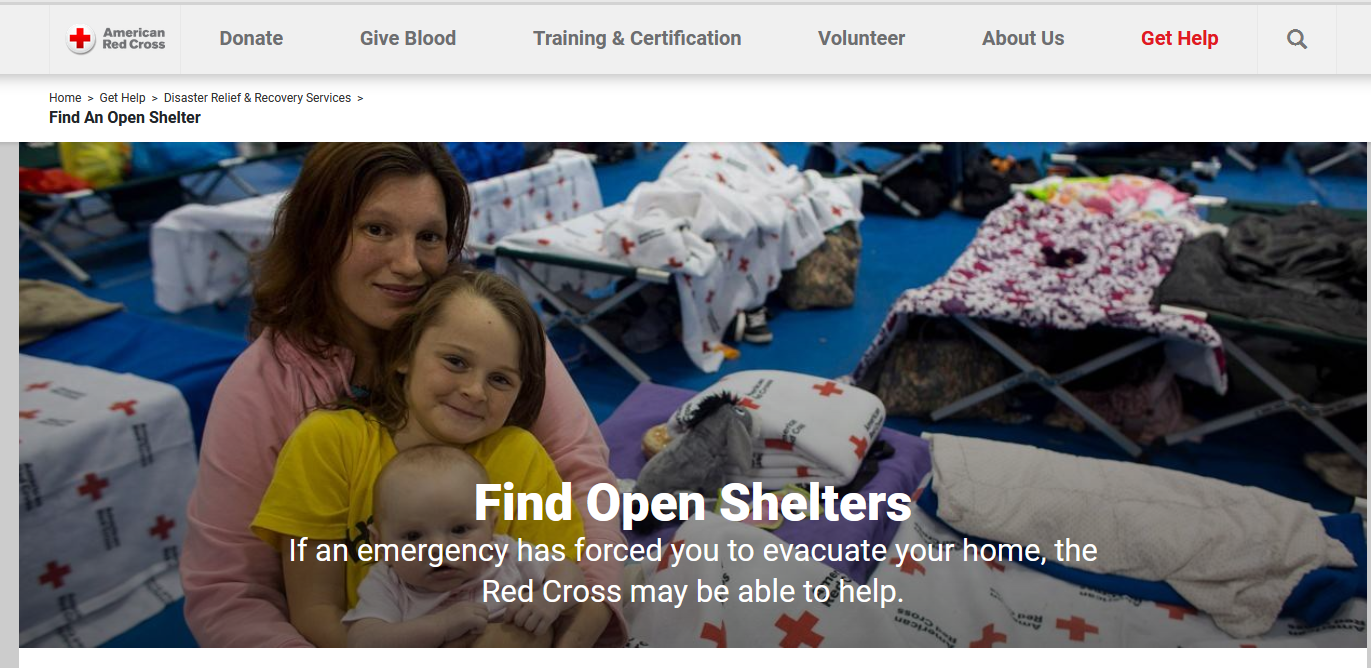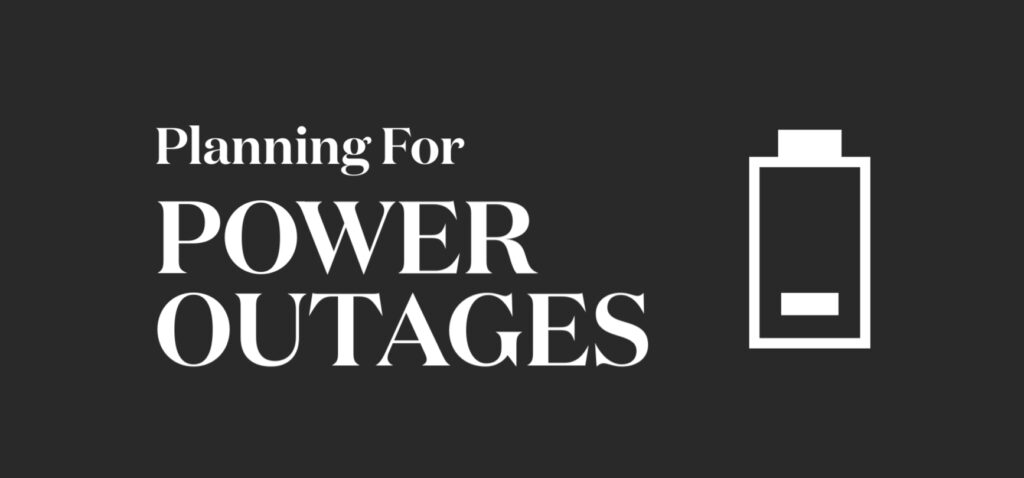
Power outages occur when the electrical power goes out unexpectedly. Outages may disrupt communications, water, and transportation access. Retail businesses, grocery stores, gas stations, ATMs, banks, and other services may become unavailable. When the power is out, it can cause food spoilage and water contamination, and can prevent the use of medical devices.
Be sure you have a plan for when the power goes out. First step is to be sure you’re signed up for public alerts. Follow the link below to set up your alerts now!
CLICK HERE TO SIGN UP FOR PUBLIC ALERTS!
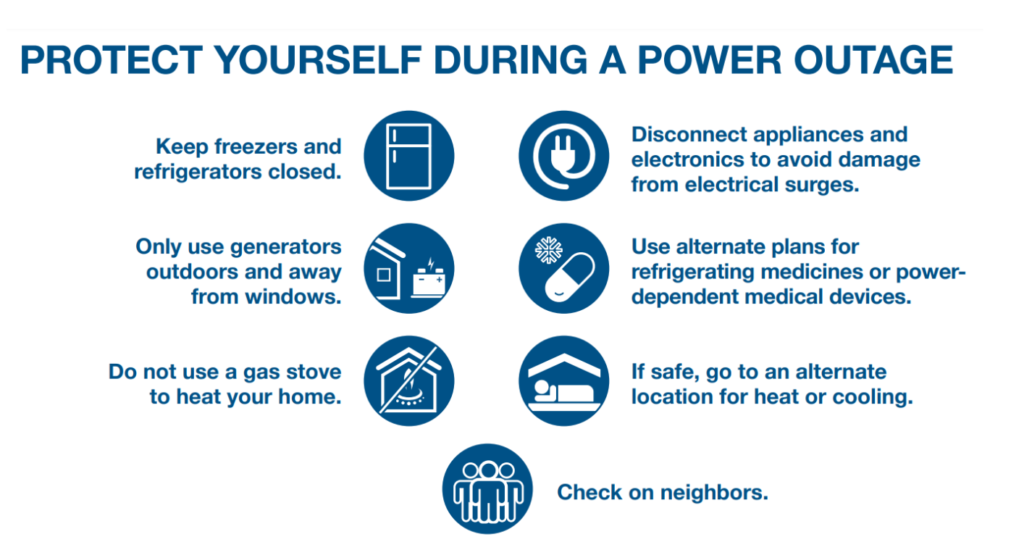
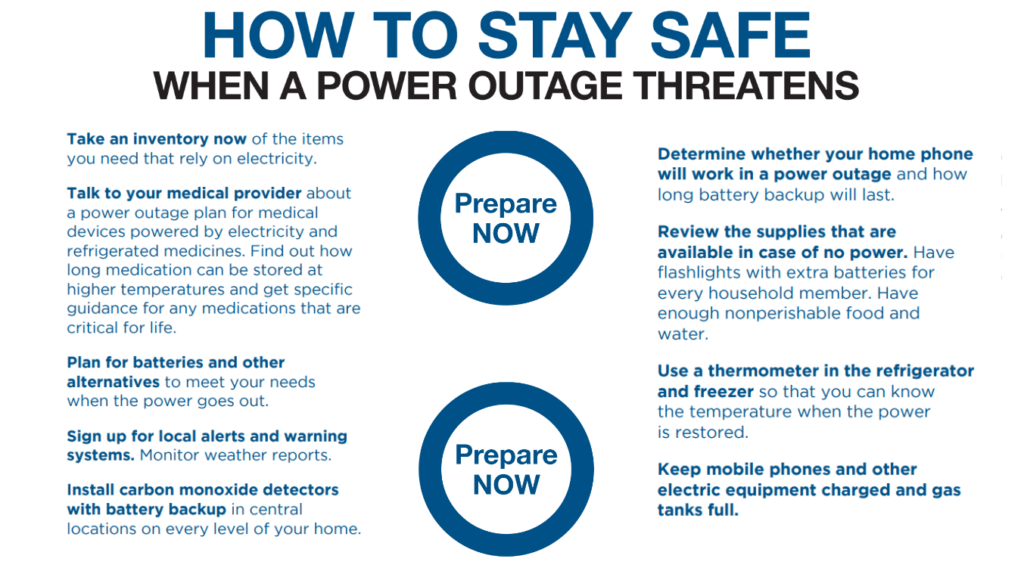
PREPARE NOW
Take an inventory now of the items you need that rely on electricity.
Talk with your medical provider about a power outage plan for medical devices powered by electricity and refrigerated medicine. Find out how long medication can be stored at higher temperatures and get specific guidance for any medications that are critical for life.
Plan for batteries and other alternatives to meet your needs when the power goes out.
Sign up for local alerts and warning systems. Monitor weather reports.
Install carbon monoxide detectors with battery backup in central locations on every level of your home.
Determine whether your home phone will work in a power outage and how long battery backup will last.
Review the supplies that are available in case of no power. Have flashlights with extra batteries for every household member. Have enough nonperishable food and water.
Use a thermometer in the refrigerator and freezer so you can know when the power is restored.
Keep mobile phones and other electric equipment charged and gas tanks full.
SURVIVE DURING
Keep freezers and refrigerators closed. The refrigerator will keep food cold for about four hours. A full freezer will keep the temperature for about 48 hours. Use coolers with ice if necessary. Monitor temperatures with a thermometer.
Use food supplies that do not require refrigeration.
Avoid carbon monoxide poisoning. Generators, camp stoves, or charcoal grills should always be used outdoors and at last 20 feet away from windows. Never use a gas stovetop or oven to heat your home.
Check on your neighbors. Older adults and children are especially vulnerable to extreme temperatures.
Go to a community location with power if heat or cold is extreme.
Turn off or disconnect appliances, equipment, or electronics. Power may return with momentary “surges” or “spikes” that can cause damage.
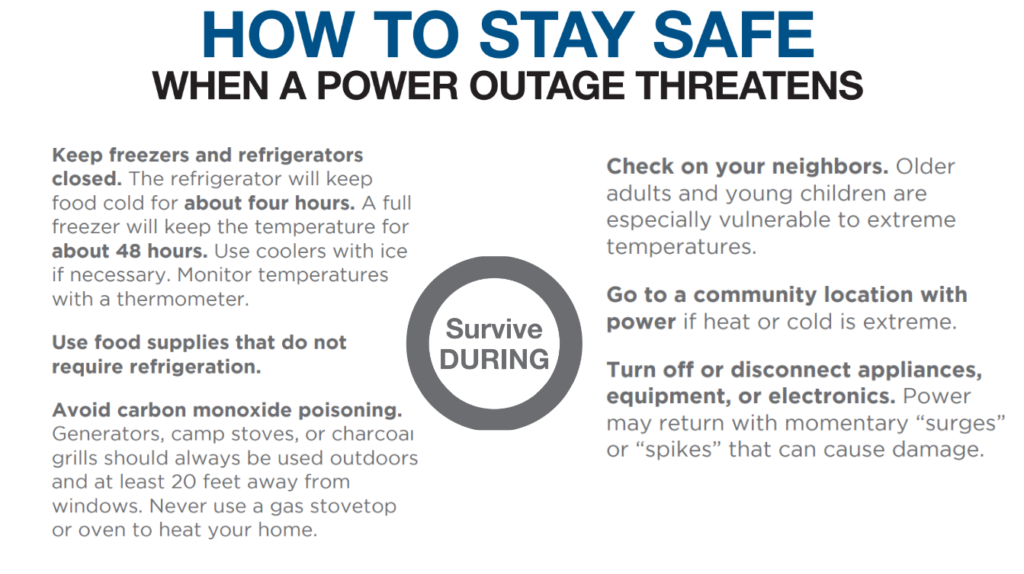
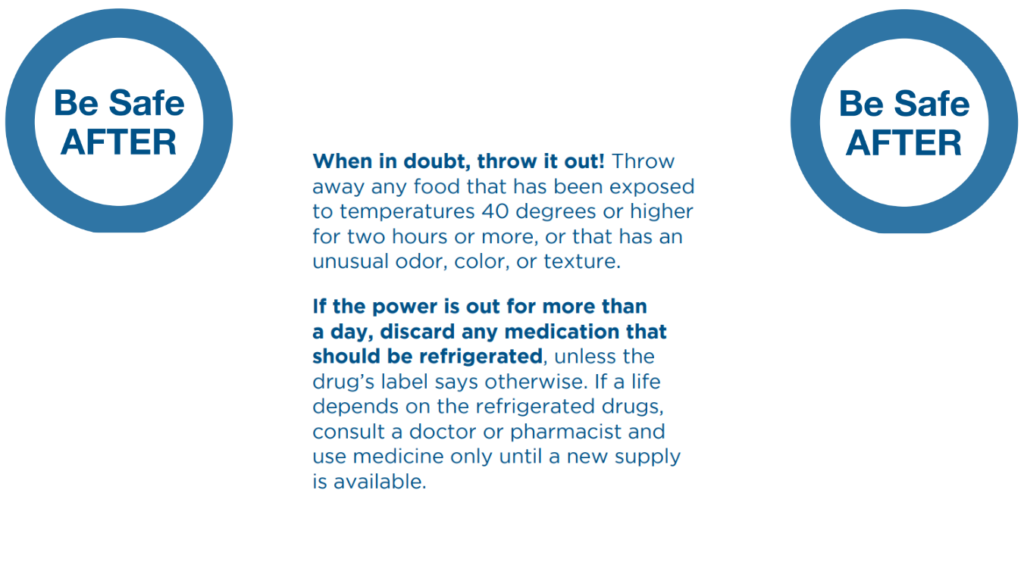
BE SAFE AFTER
When in doubt, throw it out! Throw away any food that has been exposed to temperatures 40 degrees or higher for two hours or more, or that has an unusual odor, color, or texture.
If the power is out for more than a day, discard any medication that should be refrigerated unless the drug’s label says otherwise. If a life depends on the refrigerated drugs, consult a doctor or pharmacist and use medicine only until a new supply is available.
Public Alerts
- Public Alerts (official local alert system for the following areas)
- State of Oregon: Multnomah, Washington, Clackamas, Columbia, Linn, Benton, Marion counties
- State of Washington: Clark, Cowlitz, Skamania, Wahkiakum counties
- VIDEO: Sign Up for Public Alert in some languages
- FEMA Text Alert
- American Red Cross alert app (ARC leads emergency shelters), Twitter link
- Nixle Alerts
- Clackamas County

